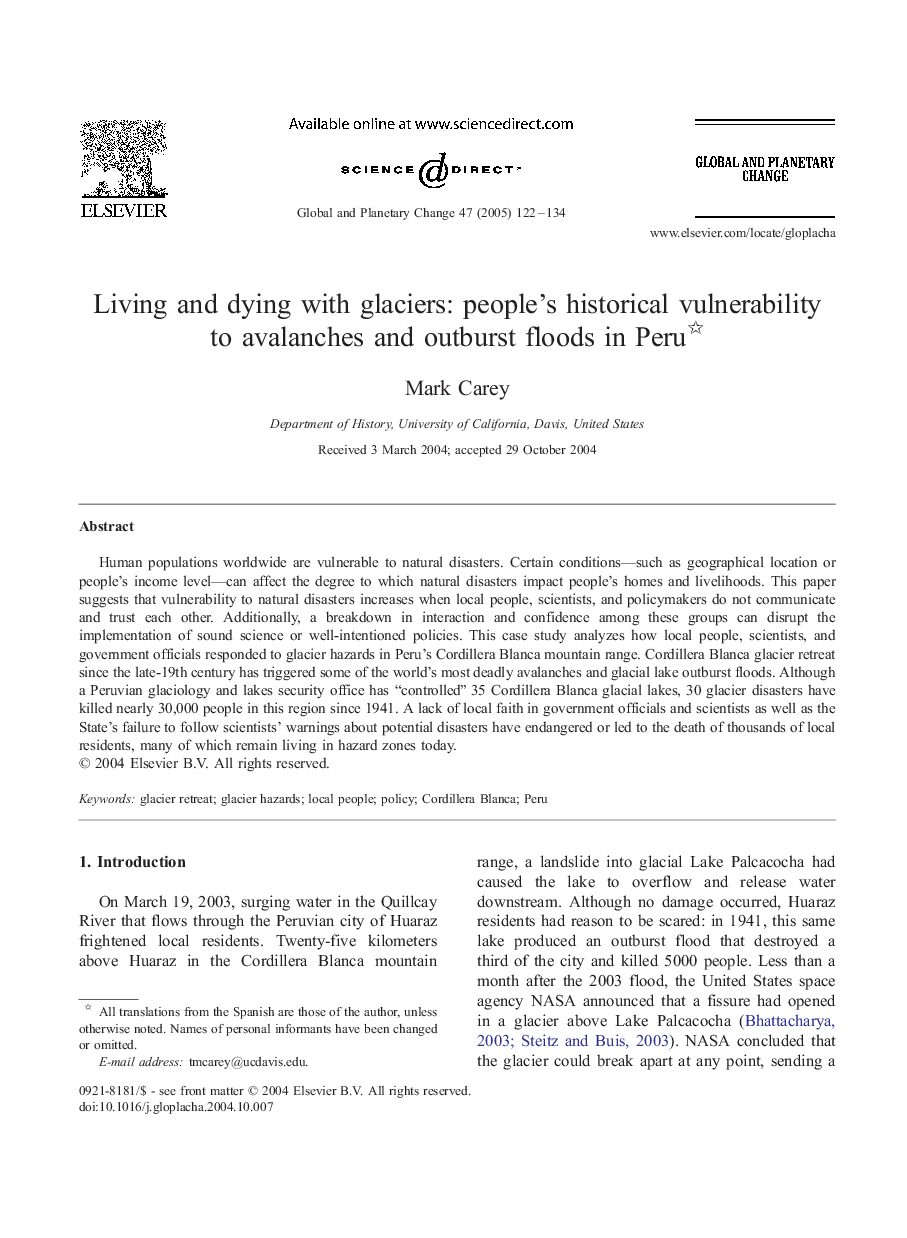| Article ID | Journal | Published Year | Pages | File Type |
|---|---|---|---|---|
| 9462552 | Global and Planetary Change | 2005 | 13 Pages |
Abstract
Human populations worldwide are vulnerable to natural disasters. Certain conditions-such as geographical location or people's income level-can affect the degree to which natural disasters impact people's homes and livelihoods. This paper suggests that vulnerability to natural disasters increases when local people, scientists, and policymakers do not communicate and trust each other. Additionally, a breakdown in interaction and confidence among these groups can disrupt the implementation of sound science or well-intentioned policies. This case study analyzes how local people, scientists, and government officials responded to glacier hazards in Peru's Cordillera Blanca mountain range. Cordillera Blanca glacier retreat since the late-19th century has triggered some of the world's most deadly avalanches and glacial lake outburst floods. Although a Peruvian glaciology and lakes security office has “controlled” 35 Cordillera Blanca glacial lakes, 30 glacier disasters have killed nearly 30,000 people in this region since 1941. A lack of local faith in government officials and scientists as well as the State's failure to follow scientists' warnings about potential disasters have endangered or led to the death of thousands of local residents, many of which remain living in hazard zones today.
Related Topics
Physical Sciences and Engineering
Earth and Planetary Sciences
Earth-Surface Processes
Authors
Mark Carey,
